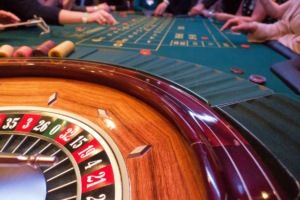Sponsored content
Is Scandinavian happiness the driver of Nordic gambling?
This article is more than 3 years old.

Gambling has surged in popularity over the past few years (photo: pxhere.com)
Scandinavia has become one of the largest markets for gambling in the last few years, and especially in the online gambling arena. Simultaneously, the Scandinavians are the happiest people on earth. How do these factors relate, if at all, and what other factors have led to the upsurge in gambling interest in the Nordic countries?
Gambling has been largely popular in the Nordic countries during the last few years, and especially online. In Denmark, revenue rose 7.9% percent across the gambling market in the third quarter of 2021. With an increase of 17.3% percent in online gambling alone according to the Danish Gambling Authority, Spillemyndigheten. Sweden and Denmark together lead the number of online gamblers in Europe with 59% and 54% respectively of total gamblers choosing online platforms.
Read more about Danish online casinos at spiludenomrofus.net.
Happiness allows for healthier gambling
Despite the issue of problematic gambling being prominent in many other countries, the increased gambling doesn’t seem to have impacted the happiness and welfare of Scandinavians much. All the Nordic countries have been placed in the top positions of the World Happiness Report for the past few years.
After some reflection, the correlation doesn’t seem strange. The reason for Nordic happiness is related to steady jobs, high average incomes, and healthy work-life balances. These factors enable citizens to gamble because it’s fun and relaxing rather than as a form of economic dependence.
However, problematic gambling is still present in the Scandinavian countries. But there is, however, a multitude of help and self-help options available which can be reached on the websites of online casinos to active self-suspension for a period of time.
Generous regulations
Scandinavian gambling regulations are generous almost across the board. Denmark and Sweden have both ended the state monopoly on gambling, whereas Norway and Iceland both have stricter laws but still allow some forms of gambling, including lotteries, slot machines, and sports betting. In Finland, where gambling is most popular, the entire gambling market is monopolized by the state.
Furthermore, the use of national celebrities as marketing for various online casinos has aided in bringing authority to the market. Furthermore, it has brought in revenue from the gambling market to the state, which is likely another reason for its generous regulations.
Finland’s gambling reforms for 2022
Finland is by far the most gambling-prone country despite its completely state-owned gambling market for both online casinos and land-based casinos. According to a study by Nordic Welfare Centre, 8 out of 10 Finns have tried gambling in the past 12 months. However, the country’s gambling market is expected to change in 2022 with the revised Lottery Act.
In December of 2021 the Lottery Act was brought up in the Finnish parliament (Suomen eduskunta) and passed after a first reading. The amended parts include the ceasing of advertisement for high addiction risk games such as slots, as well as a blocking of payments to offshore game operators. The amended law is yet to pass the second reading before it can be signed as a law.










































